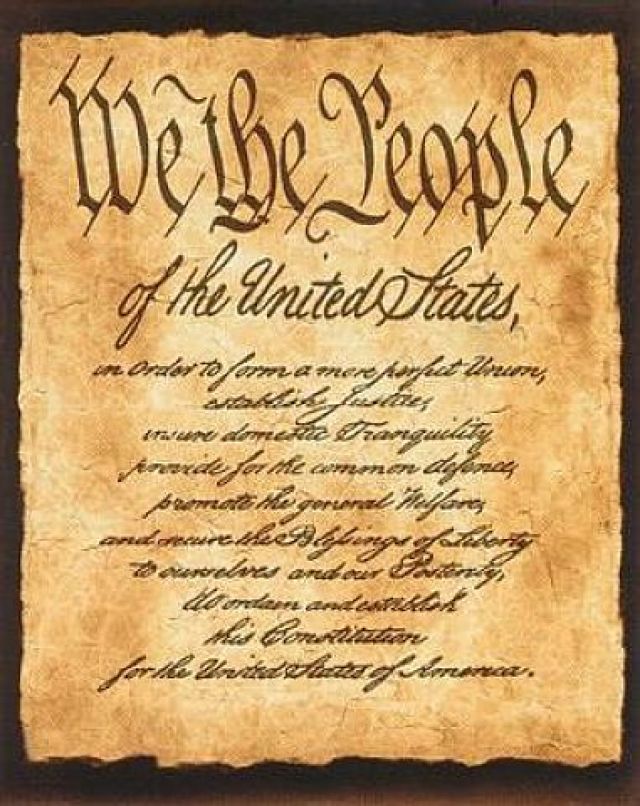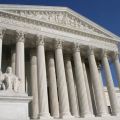America’s Constitution affords citizens a wide range of fundamental rights. Some have been added and updated over time, including outlawing slavery, allowing more Americans to vote, and ensuring equal access to public education.
Below are seventeen fundamental rights to which Americans are Constitutionally entitled.
This from msn.com.

The Constitution’s First Amendment protects the right to express ideas and information without government interference, covering speech, written communication, and symbolic actions. However, as the United States Courts notes, there are some exceptions, and the ‘Supreme Court often has struggled to determine what exactly constitutes protected speech.’
Under the First Amendment, the right to circulate ideas, information, and opinions free from government censorship is guaranteed. Democracy relies on the ability to hold the government to account, with the press able to expose citizens to a wide range of opinions and information.
The right to hold public meetings, demonstrations, and form associations without government interference is protected under the First Amendment. Peaceful protests and petitions to the government were allowed, allowing the Civil Rights Movement to push for equal rights for all Americans.
Freedom of Religion
Under the First Amendment, Congress is prohibited from making laws that ban the free exercise of religion, and Americans have the right to practice any religion or no religion at all. The ACLU argues that the Founding Fathers ‘knew the best way to protect religious liberty was to keep the government out of religion,’ so they guaranteed the separation of church and state.
The Second Amendment guarantees Americans the right to keep and bear arms. Britannica notes it was ratified in 1791 after James Madison proposed it ‘to allow the creation of civilian forces that can counteract a tyrannical federal government.’ The amendment is controversial, with debates about the degree of gun control, regulations, and background checks required to keep Americans safe.
The Fourth Amendment protects Americans’ freedom from unreasonable government searches and seizures. Cornell Law School explains that it ‘does not guarantee protection from all searches and seizures’ but generally prohibits warrantless searches of private properties ‘unless a specific exception applies.’
The Fifth Amendment ensures that Americans cannot be compelled to testify against themselves. It applies to criminal cases and protects them from double jeopardy. It also includes the right to remain silent during law enforcement interrogations.
Right to a Fair Trial
The Sixth Amendment guarantees a right to a public trial by an impartial jury and the right to a lawyer. American defendants also have the right to be informed of their charges and to know the evidence against them.
Americans are guaranteed the right to legal representation in criminal prosecutions under the Sixth Amendment. It applies even if a defendant cannot afford an attorney, and led to the creation of public defender systems.
FindLaw argues, ‘The right to a jury trial is one of the most important rights provided to criminal defendants in the United States.’ It is guaranteed under the Constitution’s Sixth Amendment and Article III, Section 2, and is rooted in English common law.
Under the Eighth Amendment, excessively harsh penalties, disproportionate sentences, or ‘cruel and unusual punishment’ are barred. The Supreme Court has consistently ruled that the death penalty is not a violation of the Amendment, but there are exceptions, for example, for those who were under 18 at the time they committed their crime.
The 14th Amendment requires American states to provide equal protection under the law to individuals within their jurisdictions. This is the basis for civil rights protections against discrimination. Individuals who believe that the federal government or a state government has violated their rights to equal protection can bring a lawsuit against that government body.
Right to Privacy
The right to privacy is not explicitly featured in the Constitution but has been derived from several amendments. A series of laws passed by Congress have also protected personal information, including the Privacy Act of 1974 and the Computer Fraud and Abuse Act.
The right to vote is protected by several amendments, including the 15th, 19th, and 26th, which have successively prohibited voting discrimination based on race, gender, and age (for those aged 18 and older). In recent years, several decisions by the Supreme Court and lower courts have been criticized for unnecessary and discriminatory efforts to restrict ballot access.
Right to Amend the Constitution
The founders specified a detailed process for amending the Constitution in Article V, which has been successfully used several times in American history. Amendments require a significant consensus that reflects broad support to prevent arbitrary changes.
Although it is not explicitly stated in the Constitution, subsequent interpretations and legislation, like the Civil Rights Act and the Americans with Disabilities Act, support the principle of equal access to public education. In the 1982 Plyler v. Doe Supreme Court decision, it was ruled that the citizenship or immigration status of an individual’s parents or guardians cannot be used to stop students from attending public schools.
Final thoughts: If and when the ongoing information war becomes kinetic, reinstatement of these freedoms will be our mission and our goal along with returning our beloved country to its former glory as a Constitutional Republic.
God speed to Conservatism.



